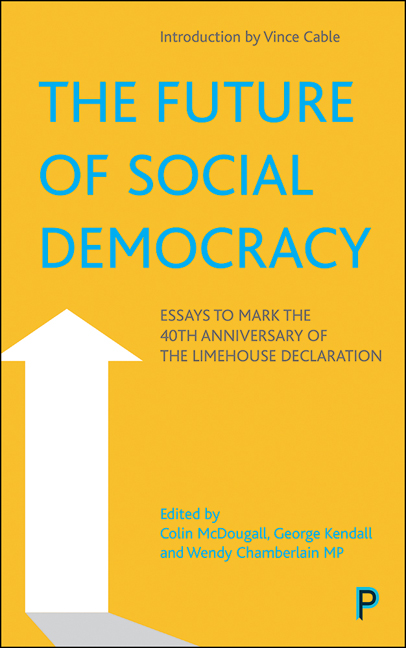Book contents
- Frontmatter
- Dedication
- Contents
- Notes on the authors
- Foreword
- Introduction: what are the priorities for social democrats?
- One After the failed alternative vote referendum, how can electoral reform have a future?
- Two How could a government actually deliver more housing?
- Three How will technology change the future of work?
- Four Can better public ownership promote efficiency and social justice?
- Five How do we grow the economy without damaging the environment?
- Six How can global free trade work for everyone?
- Seven Towards a social democratic foreign policy?
- Eight How do we deliver social justice through education?
- Nine What is the Social Democrat Group?
- Index
Eight - How do we deliver social justice through education?
Published online by Cambridge University Press: 05 January 2022
- Frontmatter
- Dedication
- Contents
- Notes on the authors
- Foreword
- Introduction: what are the priorities for social democrats?
- One After the failed alternative vote referendum, how can electoral reform have a future?
- Two How could a government actually deliver more housing?
- Three How will technology change the future of work?
- Four Can better public ownership promote efficiency and social justice?
- Five How do we grow the economy without damaging the environment?
- Six How can global free trade work for everyone?
- Seven Towards a social democratic foreign policy?
- Eight How do we deliver social justice through education?
- Nine What is the Social Democrat Group?
- Index
Summary
England and Wales have now had 150 years of state education. Various reforms since the Gladstone government's 1870 Act have undoubtedly transformed the life chances of millions of people. Yet, some aspects have changed little, the emphasis being still mainly academic, not vocational. Social mobility is possible but Gladstone's current successor is yet another old Etonian. Britain, especially England, is still a country where your life chances are set at birth. While being born privileged in Britain means that you are likely to remain privileged, if you are born disadvantaged, then you have to overcome a series of barriers to ensure that you and your children are not stuck in the same trap.
The top echelons of British society are still viewed through a glass ceiling by most of us. Our education system must be the means to shatter it. We also have a sticky floor of underachievement holding back a stubbornly consistent fifth of our young people who fail to reach the minimum standards of literacy and numeracy essential to survive in the modern world. Again, our education system must be the means to allow people to rise. It is time for some real ‘levelling up’.
To thrive in the next fifth of the 21st century, Britain will need a skilled workforce to attract investors away from our EU neighbours. We need our people to be flexible, creative and entrepreneurial. We must have the skills to design and develop world-beating products and services. Our education system and its outcomes must be changed in order to meet this challenge. According to education statistics produced by the OECD club of richer countries, Britain is just about inside the top third of its members on measurements of average literacy and numeracy scores. We are in the same cohort as the US, Japan and Sweden but we are far behind Canada, Korea and Poland, and other countries are likely to overtake us.
Britain's average scores are held down by the bottom fifth of our young people, a tail of underachievers. Most but not all of them are from disadvantaged families. It is this group of people who are failed the most by our education system. The OECD found that 17 per cent of 15 year olds did not reach the Level 2 minimum standard of literacy, with 19 per cent failing to attain functional numeracy.
- Type
- Chapter
- Information
- The Future of Social DemocracyEssays to Mark the 40th Anniversary of the Limehouse Declaration, pp. 103 - 114Publisher: Bristol University PressPrint publication year: 2021



